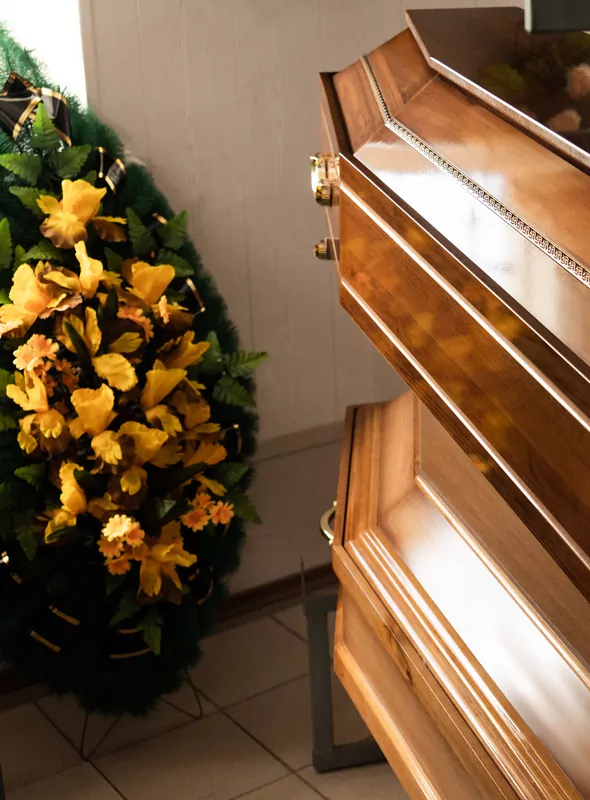Startups In The 'Death Tech' Industry See Rapid Growth
Milennials Are The First Death Positive Generation
While no one is hoping to die, planning funerals and being prepared doesn’t have to be a drag! Leave it to Millennials to take something with a traditional sense of dread surrounding it to put a new, more cheerful spin on it.
Millennials, often shaped by the economic collapses of the mid-2000’s, are trying to find new, creative ways to not burden their loved ones with costly funeral expenses. Simon Sotelo was only 27 when she began planning her funeral with the intent of donating her body to science. She found that the Oregon Health & Science University will pay to cremate remains and return them to the family after their research is complete. She also decided her family and friends should have a joyful remembrance rather than a somber wake – celebrating to “The End of the Tour” by They Might Be Giants.
Avoiding death planning seems to be the new American pastime, with a full 63% of Americans not having a will, advance directive or medical power of attorney. Even fewer (21%) have discussed funeral plans with their family or loved ones.

The avoidance death planning is primarily due to the lack of perceived choices in the matter. “Embalm & Bury” was the industry phrase used to describe what we did with human remains. Although cremation and other options existed, there were many religious and social pressures against alternative practices. As religion has become a less impactful part of life among younger people, many are exploring other options.
Another factor contributing to the avoidance of death planning is the funeral industry itself. Before the dawn of the internet, funeral directors could offer expensive options with no real choices for grieving families. Now, with information at everyone’s fingertips, an expensive casket is not the only way to spend eternity.
Conscious of cost, Millennials are leading the charge to the change in the death industry. Mortician Caitlin Doughty started the Order of the Good Death, which promotes death positivity at age 27. Katrina Spade founded a start-up which eventually became Recompose, which turns human remains into soil, bringing life from death.
Across the pond, there are even more options for younger generations. Deadhappy, a pay-as-you-go life insurance company has seen more business in the past 2 years than they did when they were started. Grief support has even had the Millennial spin added to it with The Dinner Party, which is a boozy take on therapy for loss.
Many Millenials are confused about what to do when someone passes away. In the past 5 years, there has been a significant increase in search terms related to what to do when someone dies. This is largely attributed to many young people not having to handle things such as funeral plans, probate, and other death related issues.
Liz Eddy was 27 when she found out her grandmother had passed away. “I was met by two police officers, a nurse, and her body, and they said, ‘What do you want to do?’” Eddy recalls. “I did what most people do these days and pulled out my phone and Googled, ‘What do you do when someone dies?’” It seems that while this is true, it is also true that many Millenials have had the foresight to speak to friends and family about end of life plans, according to Nathan Gerard of California State University Long Beach. His study of 84 Millenials found that 75% had held conversations like this, with about 40% going so far as to have at least drafted a will.
This is also borne out by new startups, such as Recompose, being started by Millenials. Another new app called WeCroak, sends reminders to users that they will eventually die, with the idea to encourage them to live in the moment.
New age technology like CircleIt is also playing a major role in easing the inevitable.
Facilitating the sharing of memories, cards, messages and even sending gifts to the future – those nearing the end of their lives, or even just planning ahead, can do things like read a bedtime story to their grandchildren or ensure that their spouse receives a card or flowers on a special occasion, like Rich Cox did for his wife Tracey. Members are finding new ways to explore their lineage, connect with their loved ones, and even stay connected into the afterlife.
Sending a card to your great-grandchild on their wedding day or flowers to your daughter every year on her birthday are just some of the ways that CircleIt enables you to be there, even when you can’t.
Death no longer needs to be as scary of a thought and thankfully, there are plenty of resources available – many more than were available even 10 years ago. From creative ways to celebrate to the ability to communicate from beyond the grave, planning for the inevitable no longer needs to be a drag.







